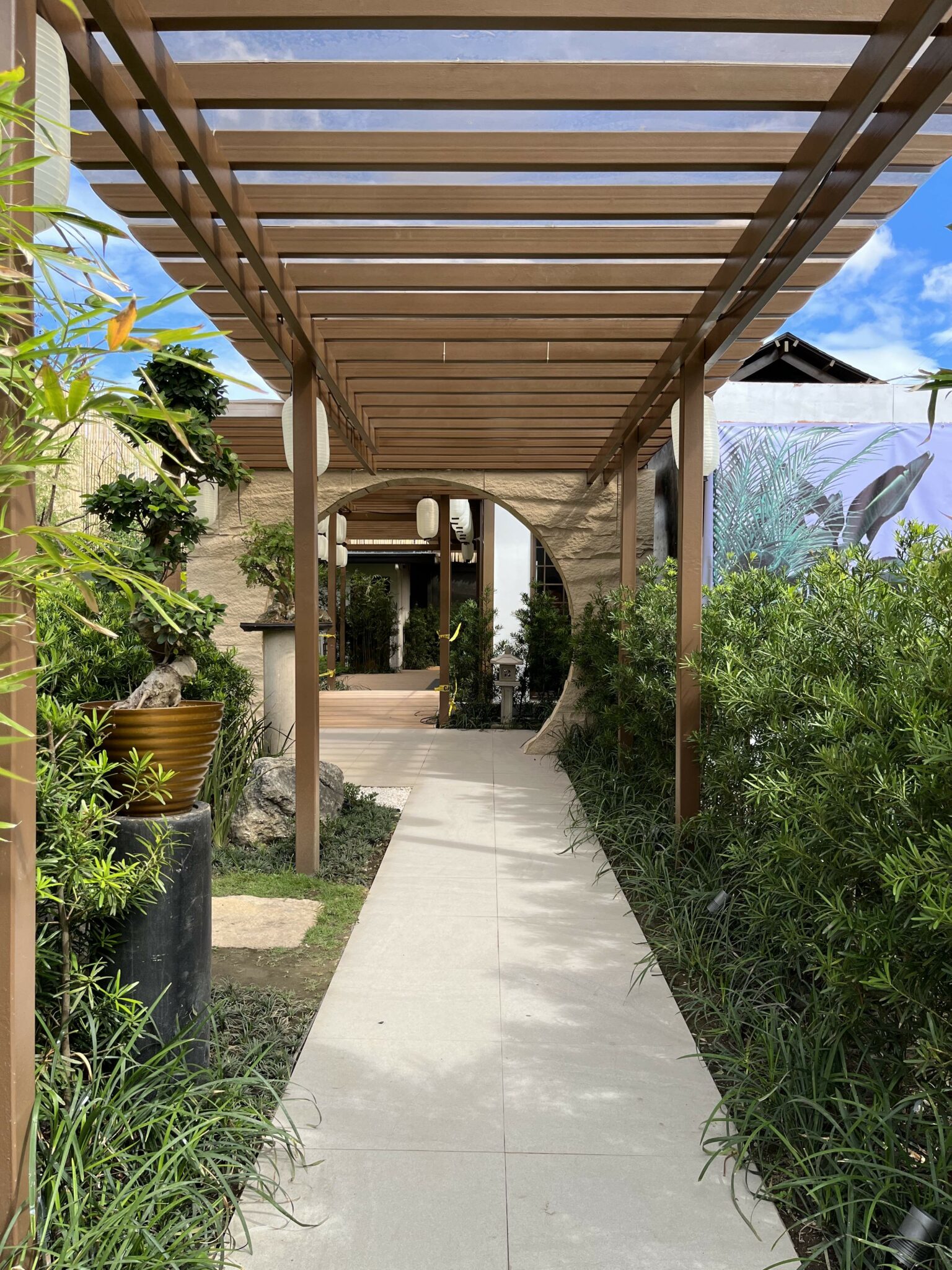There is a secret at this ‘white house’ in Taguig that may no longer hold.
By description, a white house can mean many things—the most famous of which is a symbol of the United States government and its people while on Boracay’s sunny shores, a ‘white house’ can equate to a private getaway. But for chef Bruce Lim, his ‘white house’ in Taguig represents the ideals, hopes, and dreams he has not only for his new venture but also the ‘old town’ residential neighborhood of Taguig they are in.
Then it got me thinking about another established reference sitting in the back of my mind: Vanessa Carlton’s “White Houses.”
Maybe a song about losing your virginity, your metaphorical innocence, and yourself in friendships and relationships might not be an accurate analogy on the surface but losing yourself is a narrative that runs deep here.
Standing in the middle of the cool ryokan-like bungalow, Bruce Lim practically turns the teppanyaki experience into an elegant teppanyaki tutorial for up to 15 persons.
To be fair to Carlton, “White Houses” is a lovely take on intimacy and you get that same vibe in White House Taguig, a place that holds Asian cuisine so dearly that you virtually lose yourself in the experience.
The 100-year-old, all-white heritage house (whose framework remains unchanged) is wonderfully charming with the main house boasting inviting interiors and an Asian menu that will give extra credence to off-the-center dining. And while the choice of palette is in stark contrast to White House’s pandemic beginnings, Lim is optimistic about what they can deliver to the area’s dining scene.
“It was a blessing in disguise of sorts as the partners decided to pursue kitchen and dining staff training while in the middle of a lockdown,” says Lim about his restaurant comeback.

“Everything went on in the middle of uncertainty and this foresight truly motivated everyone and gave them inspiration. And by the time White House Taguig had the opportunity to finally open, with restrictions slowly easing out, everyone was fully prepared and eager.”
“It’s alright, and I put myself in his hands,” sings a wide-eyed Carlton in the song in my head so I decided to let Lim take us on a delightful tour of the expansive space managed by the La Luna Café group.
The main house’s thrust is best described as Asia by mouth, with dishes inspired by the partners’ travels around the region. From the Thai som tum salad and the Chinese broccoli stir fry (gai lan) to Hong Kong’s chow mein and Malaysia’s beef rendang, Lim’s modern commemoration of these Asian favorites is a great reminder of the powers of culinary trips.
“When traveling, it’s really through food that one truly experiences and learns about the places being visited,” he says.
Lim also pays tribute to a facet of Japanese cuisine that showcases his sociable side and mostly local ingredients. Head over to the back of the compound to see their tribute to Japan—a Japanese garden that would soon house a gazebo for tea ceremonies, a soon-to-be-finished koi pond, and a dedicated teppanyaki dining area that enlists an army of cooks and servers around a massive iron griddle.
It isn’t a new concept, sure, but the thrill remains the same. The teppanyaki outpost is an ideal vantage point from which to admire the Japanese cooking technique-turned-cuisine.
Standing in the middle of the cool ryokan-like bungalow, Lim practically turns the teppanyaki experience into an elegant teppanyaki tutorial for up to 15 persons. With tools, spatulas, scrapers, and a hot iron griddle at his disposal, Lim brings the place to life in just five to seven dishes depending on the set that comes with a seafood, a pork or poultry, a vegetable, a side, and rice.
Regardless of what you choose, it all bears the tell-tale hallmarks of a teppanyaki experience. My taste of Set A offered heavy doses of flavors: a moist and tender kurobuta pork belly from Berkshire pigs in Batangas brims with meaty goodness while the US prime ribeye paired with a king oyster mushroom is blisteringly delicious and hefty with each bite.
The salmon and Hokkaido scallops are equally highlight reel-worthy with an invigorating smattering of garlic herb butter, lemon juice, and dashi on the sweet scallops for some extra moisture. In between bites of meat and seafood, and dips into the teriyaki and ponzu sauces on the side and the chahan (vegetable fried rice) that punctuates the conclusion to this delicious statement, Lim wields his teppan tools and scrubs the griddle constantly to keep it pristine and avoid food from sticking. It is Lim’s physical labor of love.
“Look at that lovely scene,” I thought to myself, before I heard Carlton singing again in my head (“Love or something ignites my veins”) whose every word seems to reflect what just happened.
In between bites of meat and seafood, and dips into the teriyaki and ponzu sauces on the side and the chahan (vegetable fried rice) that punctuates the conclusion to this delicious statement, Bruce Lim wields his teppan tools and scrubs the griddle constantly to keep it pristine and avoid food from sticking. It is Lim’s physical labor of love.
To reference even more of the American singer-songwriter, my first time at White House Taguig’s teppanyaki quarter isn’t hard to explain. There was a rush of excitement and a little bit of sting from the fullness that lingered with me throughout the day.
You could say I came undone at the teppanyaki things Lim did at the “end” (we were whisked away into the main house for a rewarding bowl of mango sticky rice) but it reignited memories of my visits to Japan so much that I’ll remember to be back here again soon.